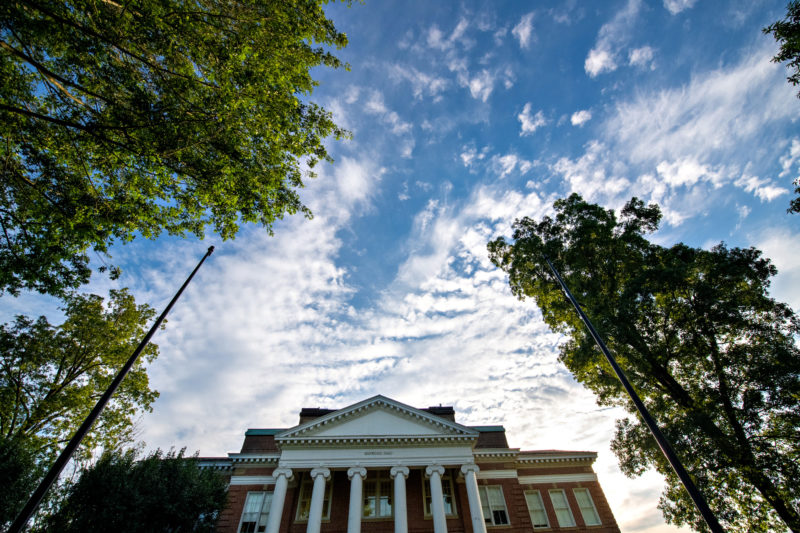 The University of Lynchburg and Lynchburg Tomorrow, a University-led community initiative, will offer a free leadership development workshop this summer to eligible students from two local high schools.
The University of Lynchburg and Lynchburg Tomorrow, a University-led community initiative, will offer a free leadership development workshop this summer to eligible students from two local high schools.
The Scholar Identity Institute, led by Dr. Gilman Whiting, is for rising 10th through 12th grade male students of color from E.C. Glass and Heritage high schools. Up to 50 participants will be selected for the pilot program, which takes place on the University of Lynchburg campus from June 6-10. Applications are available at each school and are due May 4.
Whiting, founder and director of the Scholar Identity Model and Institute and a Vanderbilt University professor, explained that a “scholar identity” is about more than grades and academic performance.
“It’s about attitudes regarding school, achievement, and decision-making,” he said. “This institute is designed to help students of color engage or reengage in the academic process.”
The concept of a “scholar identity” is based on three key assumptions, according to Whiting. First, that Black and Hispanic males are more likely to achieve academically when they have a scholar identity; second, that Black and Hispanic males are more likely to be viewed as possessing the potential for giftedness if they achieve at higher levels; and third, that these male students are more likely to reach their potential when expectations of them are high.
“Dr. Whiting’s approach has worked well in Nashville and other areas of the country, and we are confident that it will make a big impact in Lynchburg, too,” said Associate Provost Dr. Roger Jones, who helped bring the Institute to Lynchburg. “We have a large population of male students of color here who would benefit from this program.”
Each day will begin at 7:30 a.m. with breakfast in the University dining hall and end at 3 p.m. As part of the institute, students will work on nine constructs that are well-established in personality psychology.
They include self-efficacy — an individual’s belief in their capacity to execute the necessary behaviors to produce specific outcomes — future orientation, the willingness to make sacrifices, and internal locus of control — the degree to which someone believes they have control over the outcome of events in their lives.
After the morning sessions, students will have lunch in the dining hall before focusing on leadership development in the afternoon. A core leadership curriculum will serve as the foundation for the afternoon sessions, starting with the Gallup StrengthsQuest assessment. Students will engage with leadership concepts and hear from graduates of both high schools who have successful careers in a variety of fields.
In addition to leadership development, afternoon activities will focus on four key literacies: financial literacy, academic literacy, cultural literacy, and technological literacy.
Participants must meet the following criteria to be considered:
- Complete an application.
- 2.5 GPA (or recommendation from a school administrator/counselor).
- A parent or guardian must provide permission to participate and sign a “support agreement” to encourage the student to discuss what is being learned, and how the learning from an academic institute can be applied in his life.
- Teacher or administrator recommendation.
- Willingness to engage with other participants during and after the institute.
- Agree to meet with a school-based mentor who will maintain weekly contact with the student during the 2022-23 academic year.
- Agree to attend a dinner before the school year starts at the University of Lynchburg in August 2022. Parents or guardians will also be invited.
For more information, email Jones at jones@lynchburg.edu or call 434.660.5300.

